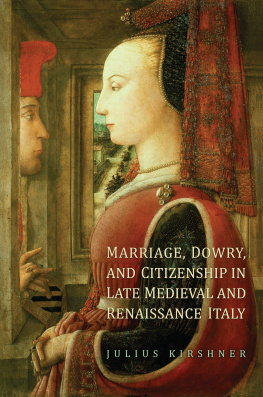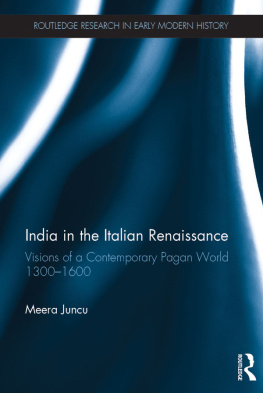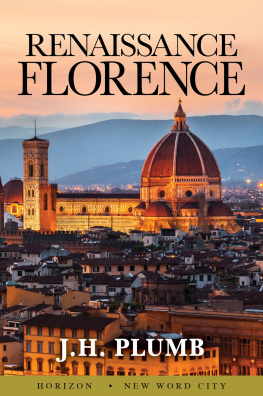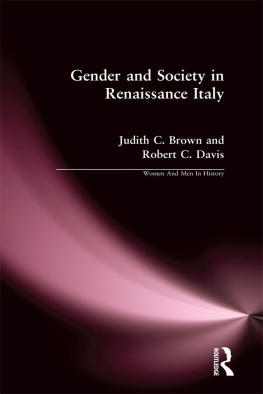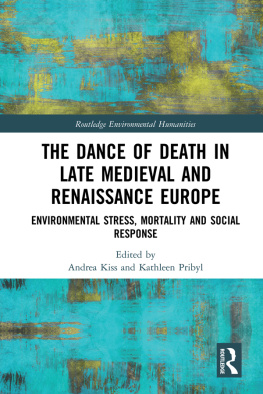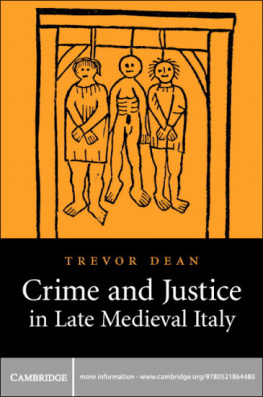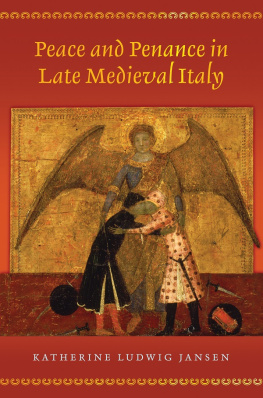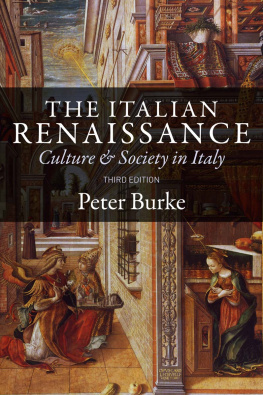Julius Kirshner - Marriage, Dowry, and Citizenship in Late Medieval and Renaissance Italy
Here you can read online Julius Kirshner - Marriage, Dowry, and Citizenship in Late Medieval and Renaissance Italy full text of the book (entire story) in english for free. Download pdf and epub, get meaning, cover and reviews about this ebook. City: Toronto, year: 2015, publisher: University of Toronto Press, genre: History. Description of the work, (preface) as well as reviews are available. Best literature library LitArk.com created for fans of good reading and offers a wide selection of genres:
Romance novel
Science fiction
Adventure
Detective
Science
History
Home and family
Prose
Art
Politics
Computer
Non-fiction
Religion
Business
Children
Humor
Choose a favorite category and find really read worthwhile books. Enjoy immersion in the world of imagination, feel the emotions of the characters or learn something new for yourself, make an fascinating discovery.
- Book:Marriage, Dowry, and Citizenship in Late Medieval and Renaissance Italy
- Author:
- Publisher:University of Toronto Press
- Genre:
- Year:2015
- City:Toronto
- Rating:3 / 5
- Favourites:Add to favourites
- Your mark:
Marriage, Dowry, and Citizenship in Late Medieval and Renaissance Italy: summary, description and annotation
We offer to read an annotation, description, summary or preface (depends on what the author of the book "Marriage, Dowry, and Citizenship in Late Medieval and Renaissance Italy" wrote himself). If you haven't found the necessary information about the book — write in the comments, we will try to find it.
Through his research on the status of women in Florence and other Italian cities, Julius Kirshner helped to establish the socio-legal history of women in late medieval and Renaissance Italy and challenge the idea that Florentine women had an inferior legal position and civic status.
In Marriage, Dowry, and Citizenship in Late Medieval and Renaissance Italy, Kirshner collects nine important essays which address these issues in Florence and the cities of northern and central Italy. Using a cross-disciplinary approach that draws on the methodologies of both social and legal history, the essays in this collection present a wealth of examples of daughters, wives, and widows acting as full-fledged social and legal actors.
Revised and updated to reflect current scholarship, the essays in Marriage, Dowry, and Citizenship in Late Medieval and Renaissance Italy appear alongside an extended introduction which situates them within the broader field of Renaissance legal history.
Julius Kirshner: author's other books
Who wrote Marriage, Dowry, and Citizenship in Late Medieval and Renaissance Italy? Find out the surname, the name of the author of the book and a list of all author's works by series.

